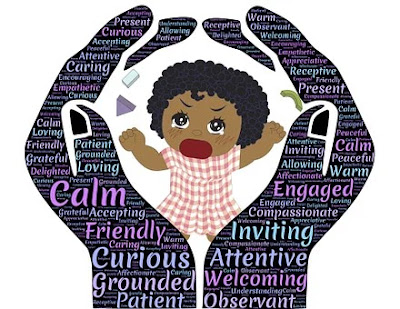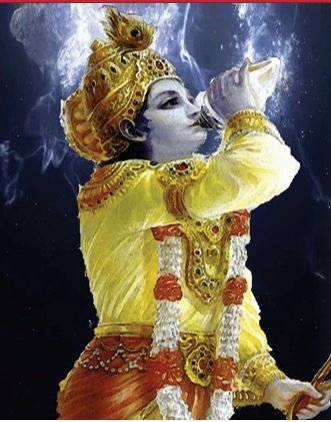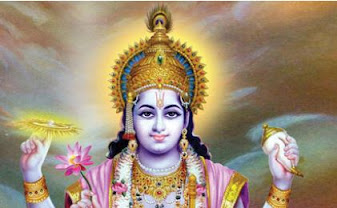Anger and anxiety - the main factors that affect our health.
Five principals to follow in daily life-
1. I will not be angry in today's day
How does anger affect our health?

Although jealousy, hatred, malice etc. are all bad for human health, but from the health point of view, anger is the biggest enemy of man. Just as the strong velocity of the storm shakes the gardens and destroys their beauty, in the same way, the strongest impulse of anger creates a storm in a man's body-mind and causes them to do something wrong. In the state of anger, a strong velocity is contained within the human being, but with the passage of time, at the end of the anger, the man, like a drunkard, finds himself extremely weak and weak. It repents for a long time over its inappropriate work done in a state of charge. This statement is true that anger starts with stupidity and ends with remorse.
However, if we consider the side effects of anger on the body, first it becomes clear that anger is basically a mental disease, which gradually leaves its side effects on the body. In the state of anger, many types of poisons are generated in the body, which cause fatal damage to the internal organs of the body.
According to medical scientists, the external and internal actions of the body are badly affected due to anger, which causes the ratio of essential chemicals produced in the body to deteriorate. Anger causes the muscles of the body to become completely tense due to stimulation. Mainness: The muscles of the arms and legs swell and start to crack. Likewise, the face also gets stretched, which affects other parts of the body as well. It starts to turn red.
In the state of anger, the action that is most affected is respiration. Actually due to the impulse of anger, the body lacks energy. To accomplish this, the breathing process has to work more quickly. The lungs are unnecessarily burdened with extra work and they have to do more work. In this way, the speed and rate of respiration increases suddenly. During this time the body receives a lot of oxygen, which is the main source of energy. If the lack of energy in the body is not met by other places at such a time, the chances of diseases like blood pressure, dizziness, etc. increase.
Anger is also responsible to a large extent for Delhi's disease. In the state of anger, the heart rate increases more than usual, due to which the speed of blood circulation in the body also becomes abnormally fast. Heart, arteries and blood vessels have to do more work.
In the state of anger, the highest demand for blood comes from the brain. The liver also helps the blood supply. In such a situation, the ratio of oxygen in the blood increases and more energy is produced. This excess weight on the heart causes diseases like blood pressure. Sometimes a hit-attack or hurt fails in such a situation.
It has often been seen that people of temper nature do not have good digestion. The basic reason for this is that in the state of anger, the functioning of the stomach and intestines almost ceases. Anger not only gives birth to many diseases and internal diseases in the body, it also destroys human beauty. Wherever blue veins emerge in the body, there are untimely wrinkles on the face, black marks under the eyes.
By staying in anger for 15 minutes, that much energy is lost from the human body. In which he can easily work hard for 9 hours in normal state. At the time of anger, there is an increase in the range of vision of the eyes, which is fatal to the eye-light. Food eaten in anger is never digested. This causes stomach pain indigestion and other diseases.
Other diseases due to anger-
👉Migraine
👉Ulcer and acidity
👉Increase of cholesterol
👉Diabetes and inflammation in joints
👉Muscle strains, spondylitis
👉Weakness of the immune system of the body
Cause of anger-
👉Some situations provoke a tendency to become angry - such as
👉When people around you do not behave as you expected.
👉When a person comes in the way of your wish fulfillment or attainment of your cause.
👉When someone disagrees with you and opposes you.
👉When someone misbehaves with you, insults you, says your bad in front of you or behind your back.
👉When someone does not understand your need, convenience and problems.
👉When people take care of your promises and accountability.
👉When someone cheats on you and cheats you about the quality, reliability of the goods.
👉When your subordinates do not meet the criteria set by you and as a result your decisions are affected.
👉When someone puts obstacles in your actions.
Short-term ways to control anger -
1. As soon as anger comes, the conversation should be stopped immediately.
2. Do not carry forward the conversation.
3. If it is difficult to remain silent, then that place should be left immediately.
4. Drink a glass of cold water or close your eyes and sit somewhere.
5. Recall counting from 100 to 1 or let the anger cool down by reciting one of your mantras. Chanting of "Om" is best.
6. Go fast in the open air or concentrate in a game.
7. Think about the consequences caused by anger.
8. Think that peace and stability of mind is very important and do not let this precious treasure be destroyed by small causes.
Long-term ways to control anger
👉Do regular yoga
👉Hold silence and restraining speech
👉Meditate
👉Modesty in everyday work
👉Conquer anger by destroying ego.
👉Increase such habits that promote our tolerance so that we are not agitated in situations like abusive, injustice or insult etc.
👉Use organic food, such as fruits, milk, vegetables, etc.
👉Make a habit of reading good literature
👉Associate with good people , participate in 'Satsang'
👉Try to be as close as possible to the nature
👉Simple life, adopt a lifestyle of high thought (Simple living High thinking)
👉Pardon others
👉Take care of your health so that you can always be fit
👉Try continuous introspection. After getting angry, ask yourself 'Why did I get angry?' 'Was my anger really necessary?', 'What did I get by being angry?'
2. I will not worry only today
Not to worry, it does not mean that you will not consider to solve your problems or difficulties, you will not make any plan to solve them. Worry about anything, you are having various kinds of apprehensions, then calm down and write down all your problems and those fears which are not allowing you to take rest day and night. Write again, what is the maximum harm that can happen? Get ready to accept that result from your mind.
Worrying leads to a reverse loss rather than a gain. Anxiety causes many physical and mental diseases to occur. No problem has ever been solved by worrying and neither will ever happen in future. Hence Chinta (worry) is said to be similar to Chitaa (death bed). The fire of pyre burns only the dead body, while worry also burns your living body and mind.
Collect all the facts related to the problem without bias. Consider all its aspects and after taking advice from friends and concerned persons and experts, make a logical gradual plan of its light and get involved in solving it. Whenever you start worrying, then you get engaged in some creative work. Engage yourself more and more in useful tasks so that the useless thoughts do not disturb the mind.
You pray to God for the strength that you can overcome problems and pray for the power to tolerate situations or situations that cannot be changed. This will keep both your body and mind healthy.
3. Only today I will do my work honestly
Individuals who do their work honestly are free from fear and worries. They get prestige and respect in the society and they get respect in the society. The closer you are to the truth, the closer you are to God. People who earn dishonestly may get momentary happiness but they have to regret it later. You came empty-handed and will go empty-handed, then for whom is dishonestly earning money? If you are collecting money for your child, then always keep two things in mind.
"पूत- सपूत तो क्यों धन संचय"
"पूत- कपूत तो क्यों धन संचय'
Meaning
'If son is good, why accumulate wealth'
'If son is bad, then why accumulate wealth'
Today, man is living for material pleasures, not for spiritual pleasure and is engaged in earning money by resorting to dishonesty, lies, incest and corruption. Family people, for whom you have been earning dishonestly throughout your life, do not become your support when you are old, become your enemies for wealth and thirst for each other's blood for wealth. Then why cheat? Live a happy and joyful life by earnestly earning a living and become the blessings of God.
4. I will only thank God for today
At the beginning of every day, give thanks to God and the Gods you believe in. Have a feeling of gratitude for what God has given you so much through nature. A feeling of gratitude filled with joy and happiness will fill a new enthusiasm and confidence in you, which will pave the way for joy and success in the path of your life. If there is failure or misery in life, keep this feeling in mind that God has sent them for you.
5. In today's day, I will show love and respect to all living beings
In this theory, there is a sense of love and respect for whole creatures or stripes, and a sense of non-violence. Mahavir, Gautam Budh and Mahatma Gandhi have taught philosophy of non-violence. All animals, birds, insects, trees and plants also feel pain and pain like ours. Therefore, compassion and kindness should be shown to all. All of us are being influenced by the energy of the Supreme Father God. Pledge to protect animals and birds.













































